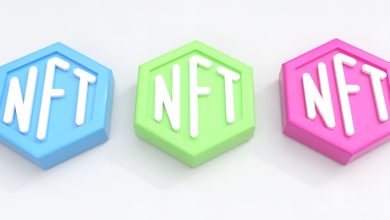The Role of Privacy Coins: Monero, Zcash, and More

- Understanding the need for privacy in the digital age
- Comparing Monero and Zcash: How do they differ?
- The advantages and disadvantages of using privacy coins
- Regulatory challenges facing privacy coins
- The future of privacy coins in the cryptocurrency market
- Tips for safely using privacy coins in transactions
Understanding the need for privacy in the digital age
In today’s digital age, where our every move online is being tracked and monitored by various entities, the need for privacy has become more crucial than ever. People are starting to realize the importance of keeping their online activities private and secure from prying eyes. This is where privacy coins like Monero and Zcash come into play. These cryptocurrencies offer users the ability to make transactions anonymously, without revealing their identities or transaction details to anyone else.
Privacy coins utilize advanced cryptographic techniques to obfuscate transaction details, making it virtually impossible for third parties to trace the flow of funds. This added layer of privacy not only protects users from potential hackers and scammers but also safeguards their financial information from being exploited for malicious purposes. With the rise of data breaches and identity theft cases, the demand for privacy coins has been steadily increasing as more people seek to regain control over their personal information.
By using privacy coins, individuals can conduct transactions with a peace of mind, knowing that their financial activities are shielded from unwanted scrutiny. Whether it’s buying goods and services online or sending funds to family and friends, privacy coins offer a level of anonymity that traditional cryptocurrencies simply cannot match. As we continue to navigate the complexities of the digital world, the role of privacy coins in protecting our online privacy and security will only become more pronounced.
Comparing Monero and Zcash: How do they differ?
When comparing Monero and Zcash, it is important to understand the key differences between the two privacy coins. While both cryptocurrencies focus on enhancing user privacy and anonymity, they achieve this goal through different methods.
Monero uses a technology called ring signatures to obfuscate the origins of a transaction, making it virtually impossible to trace. This ensures that all transactions on the Monero network are private and untraceable. On the other hand, Zcash uses a technology called zk-SNARKs, which allows for selective transparency. Users can choose to make their transactions public or shielded, giving them more control over their privacy.
Another key difference between Monero and Zcash is their approach to privacy. Monero is designed to be completely private by default, with all transactions being anonymous. Zcash, on the other hand, gives users the option to choose between transparent and shielded transactions. This flexibility may appeal to users who value transparency in certain transactions.
Overall, both Monero and Zcash are leading privacy coins in the cryptocurrency space, each offering unique features and benefits. The choice between the two will ultimately depend on the user’s preferences for privacy, transparency, and anonymity.
The advantages and disadvantages of using privacy coins
Privacy coins offer several advantages, making them a popular choice for users looking to keep their financial transactions private. One of the main benefits of privacy coins is the enhanced anonymity they provide. By using advanced cryptographic techniques, such as ring signatures and zero-knowledge proofs, privacy coins can obscure the sender, recipient, and amount of a transaction. This feature is particularly appealing to individuals who value their privacy and want to prevent third parties from tracking their financial activities.
Furthermore, privacy coins offer a higher level of security compared to traditional cryptocurrencies like Bitcoin. With privacy coins, transactions are not recorded on a public ledger, making it more difficult for hackers and malicious actors to trace and intercept funds. This added layer of security can help protect users from potential cyber threats and fraud.
However, using privacy coins also comes with its disadvantages. One of the main concerns surrounding privacy coins is their association with illicit activities. Because of their enhanced privacy features, privacy coins have been used for illegal transactions on the dark web, leading to regulatory scrutiny and concerns about money laundering and terrorist financing.
Another disadvantage of privacy coins is their limited acceptance and use in mainstream markets. Due to their focus on privacy and anonymity, privacy coins may face challenges in gaining widespread adoption among merchants and financial institutions. This limited acceptance can hinder the liquidity and value of privacy coins, making them less attractive for everyday transactions.
Regulatory challenges facing privacy coins
One of the main regulatory challenges facing privacy coins such as Monero and Zcash is the concern over their potential use in illegal activities. Due to the enhanced privacy features of these coins, they have been associated with illicit transactions on the dark web and other nefarious activities. This has raised red flags among regulators and policymakers who are worried about the implications of untraceable transactions on the financial system.
Additionally, privacy coins pose a challenge to traditional anti-money laundering (AML) and know your customer (KYC) regulations. These regulations require financial institutions to verify the identity of their customers and report any suspicious transactions to authorities. However, privacy coins make it difficult to track the flow of funds and identify the parties involved in a transaction, which can hinder efforts to combat money laundering and terrorist financing.
Furthermore, the anonymity provided by privacy coins has raised concerns about their compliance with existing financial regulations. Regulators are increasingly focused on ensuring transparency and accountability in the financial system, which conflicts with the anonymous nature of privacy coins. This tension between privacy and regulatory compliance has led to calls for stricter oversight and potentially even bans on privacy coins in some jurisdictions.
Overall, the regulatory challenges facing privacy coins are complex and multifaceted. While privacy coins offer enhanced privacy and security for users, they also raise significant concerns for regulators and policymakers. Finding a balance between privacy and regulatory compliance will be crucial for the future of privacy coins in the evolving regulatory landscape.
The future of privacy coins in the cryptocurrency market
The future of privacy coins in the cryptocurrency market remains uncertain yet promising. Privacy coins such as Monero, Zcash, and others have gained popularity due to their focus on anonymity and security. Despite facing regulatory challenges and scrutiny, these privacy coins continue to attract users who value their privacy and confidentiality.
Privacy coins offer users a way to conduct transactions without revealing their identities or transaction details on a public ledger. This added layer of privacy has made privacy coins a popular choice for individuals and organizations looking to protect their financial information from prying eyes. As the demand for privacy and security in the digital world grows, privacy coins are likely to play an important role in the future of the cryptocurrency market.
However, privacy coins also face challenges such as regulatory pressure and concerns about their use in illegal activities. Regulators around the world are increasingly focused on preventing money laundering and terrorist financing, which has led to increased scrutiny of privacy coins. This regulatory pressure could potentially impact the adoption and growth of privacy coins in the future.
Despite these challenges, privacy coins have shown resilience and continue to evolve to meet the needs of their users. Innovations such as zero-knowledge proofs and ring signatures have enhanced the privacy features of coins like Monero and Zcash, making them even more secure and anonymous. As privacy coins continue to innovate and adapt to regulatory changes, they are likely to remain a key player in the cryptocurrency market for years to come.
Tips for safely using privacy coins in transactions
When using privacy coins in transactions, it is important to take certain precautions to ensure the security and anonymity of your funds. Here are some tips for safely using privacy coins:
- Always use a secure wallet to store your privacy coins. Look for wallets that offer features such as encryption, two-factor authentication, and support for multiple cryptocurrencies.
- Be cautious when sharing your wallet address with others. Avoid using the same address for multiple transactions, as this can make it easier to trace your activity.
- Consider using a VPN or Tor to mask your IP address when conducting privacy coin transactions. This can help protect your identity and location from being exposed.
- Avoid using public Wi-Fi networks when making privacy coin transactions, as these networks may not be secure and could expose your sensitive information to potential hackers.
- Keep your private keys secure and never share them with anyone. Your private keys are essential for accessing your funds, so it is important to keep them safe from unauthorized access.
By following these tips, you can help protect your privacy and security when using privacy coins in transactions. Remember to stay informed about the latest developments in privacy coin technology to stay ahead of potential risks and threats.



